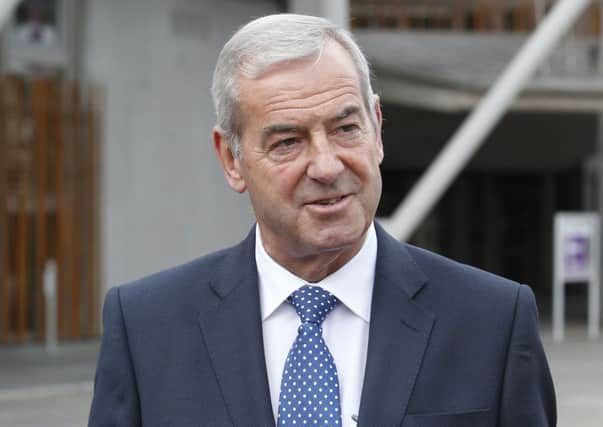‘Scotland split over direction of devolution’


Lord Smith of Kelvin yesterday published more than 380 submissions received by his commission that was set up to deliver a stronger Scottish Parliament.
Analysis of the submissions revealed radically differing views on how much power should be devolved to Holyrood in the aftermath of the referendum No vote.
Advertisement
Hide AdAdvertisement
Hide AdA host of Yes campaign groups responded to Lord Smith’s call for submissions and produced documents recommending that as much power as possible is transferred to Edinburgh.
Calls for a so-called devo-max settlement – which would see all powers save those over defence and foreign affairs come to Edinburgh – were not supported by key businesses and business organisations.
Politicians from the SNP, Labour, the Tories, Liberal Democrats and Greens are taking part in negotiations chaired by Lord Smith that will determine the extra powers that are to be transferred north from Westminster.
Yesterday Lord Smith oversaw the third session of talks held by the commission, which will also take account of the views of businesses and civic Scotland.
CONNECT WITH THE SCOTSMAN
• Subscribe to our daily newsletter (requires registration) and get the latest news, sport and business headlines delivered to your inbox every morning
In a submission typical of the business response, the Glasgow-based Weir Group argued that the maintenance of a single market was vital to business.
The Weir Group recognised that there was consensus for further income tax devolution, but warned that tax divergence would increase costs.
The Conservatives and Lib Dems have said that Holyrood should get full control of income tax, but the Weir Group argued that some elements of the levy should remain consistent across the UK to protect the single labour market.
Advertisement
Hide AdAdvertisement
Hide AdLike other businesses, there was reluctance to devolve corporation tax on the grounds that doing so would undermine the UK-wide system.
The CBI argued that powers over business tax, energy, financial services and employment should remain under Westminster control.
“CBI members in Scotland greatly value the single market that exists in the UK. It is this ease of doing business across the nations of England, Scotland, Wales and Northern Ireland which has helped the Scottish economy to flourish,” said the CBI submission.
“For the UK’s single market to continue to facilitate growth in Scotland, the CBI would support the continued reservation of powers in a number of key areas: business taxes, energy, financial services and employment.”
In contrast, many third-sector organisations advocated a devo-max approach. For example, the Glasgow and West of Scotland Forum of Housing Associations, the body overseeing community-controlled housing, said: “This submission takes as its starting point the principle that for Scotland to have the greatest influence over its housing system, we require the devolution of powers over taxation, social security and energy policy – consistent with what has become known as devo-max.”
The Scottish Tenant Farmers Association commented on “the importance of achieving a strong devolution or Home Rule settlement for the agricultural sector in general and the tenanted sector in particular”.
Yes organisations claimed that surveys had indicated that there was a groundswell in favour of devo-max and argument that the “more powers” promise made by the pro-Union parties before the September vote amounted to such a settlement.
In addition to the formal submissions, Lord Smith has received more than 14,000 e-mails and letters from the public.
Advertisement
Hide AdAdvertisement
Hide AdThe commission secretariat will publish a breakdown of the key themes emerging from these submissions. A dedicated session of cross-party talks will be held to consider the views submitted by the public and institutions.
Lord Smith said: “We have received a broad range of views and I have been delighted by the response from both civic groups and wider society.
“The nominees from the five political parties will now reflect on these submissions and the public too will be able to see them on our website as the conversation about how the Scottish Parliament can be strengthened continues.”
SCOTSMAN TABLET AND IPHONE APPS